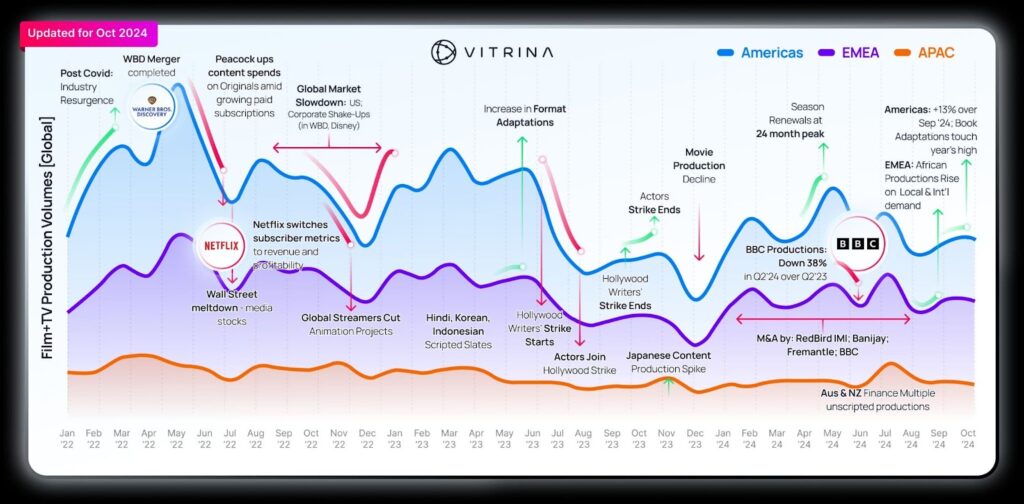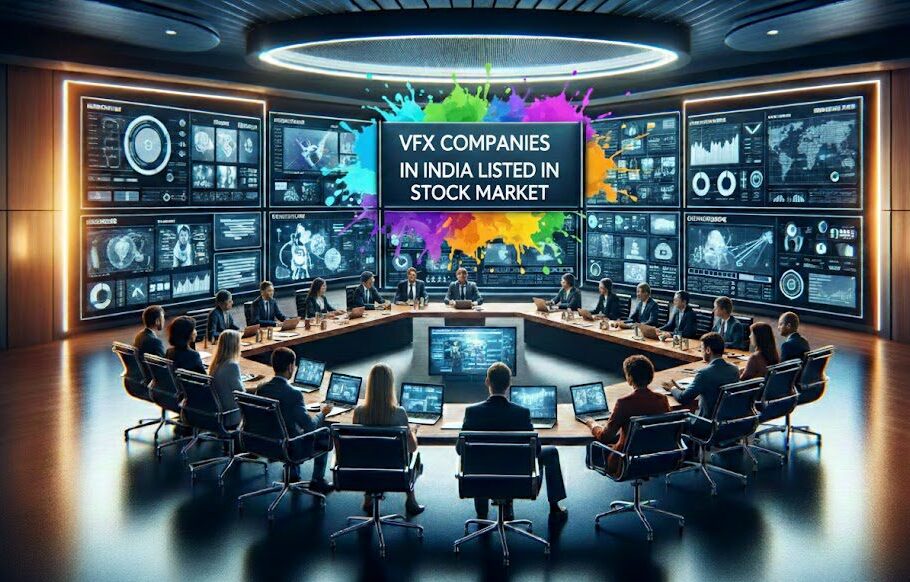Introduction
The film production industry is experiencing a dynamic shift in 2024, driven by technological breakthroughs, a focus on sustainability, and expanding global markets. These changes are redefining how movies are conceived, created, and distributed. As stakeholders adapt to new challenges, opportunities for innovation and collaboration have emerged.
This article explores the industry’s highlights, including major trends, challenges, and future directions. Additionally, we’ll examine tools and strategies that are reshaping filmmaking while addressing how industry leaders can stay competitive.
Key Takeaways
| Topic | Key Insight |
| Industry Trends | Virtual production and AI are revolutionizing how films are made. |
| Challenges | Rising costs and labor strikes have reshaped production strategies. |
| Sustainability | Eco-friendly practices are becoming essential for long-term industry viability. |
| Technological Innovations | Tools like AR, VR, and blockchain streamline production and storytelling. |
| Regional Dynamics | Emerging markets and tax incentives drive growth in hubs like Asia and the UK. |
Stay Ahead in Film Production!

Key Industry Trends
Virtual and Augmented Realities
Virtual production technologies have transformed filmmaking by allowing real-time integration of CGI and live-action elements. Augmented reality is further enhancing storytelling by creating immersive, interactive experiences.
- Example: Productions like The Mandalorian have successfully utilized virtual production to reduce costs while achieving breathtaking visuals.
Learn more about this evolution in August’s blog.
AI and Blockchain Integration
AI-powered tools now streamline tasks such as script analysis, audience prediction, and post-production editing. Blockchain technology is being leveraged to secure content rights and facilitate transparent transactions.
- Example: AI-driven solutions like predictive analytics are optimizing decision-making in pre-production.
Challenges in Film Production
Economic Pressures
Rising production costs, coupled with labor disruptions in 2023, have led studios to reevaluate schedules and budgets.
- Insight: Major Hollywood strikes delayed numerous blockbuster projects, creating ripple effects across the industry.
Cultural and Regulatory Barriers
Filmmakers working in global markets face challenges in navigating cultural nuances and complying with local regulations.
- Solution: Tax incentives in regions like the UK are encouraging collaboration between studios and governments.
Discover solutions to these challenges in the September blog.
Expand Your Production Network!

Regional and Market Dynamics
Emerging Hubs
Regions like Asia and Latin America are emerging as cost-effective production centers, while the UK leads with advanced infrastructure and government incentives.
- Example: Pinewood Studios continues to expand to meet demand for large-scale productions.
Co-Production Agreements
International collaborations are enabling broader market access and richer narratives.
- Insight: Co-production deals are pivotal in creating globally appealing films.
Technological Tools
Tools Driving Efficiency
Cloud-based platforms, IoT devices, and virtual production environments are streamlining workflows, enhancing collaboration across borders.
- Example: Real-time CGI integration reduces time and cost significantly, while IoT ensures set efficiency.
Future Insights and Case Studies
Immersive Storytelling
The future of filmmaking lies in immersive technologies like VR and AR, which promise unparalleled audience engagement.
Sustainability Practices
Eco-friendly productions not only reduce environmental impact but also attract like-minded collaborators and audiences.
- Example: Independent films adopting sustainable methods have garnered attention for both their storytelling and ethics.
For a deeper dive into these trends, visit the October blog.
Key-Takeaways
The film production industry in 2024 is characterized by innovation and resilience. From virtual production technologies to sustainability efforts, filmmakers are adapting to meet new demands and opportunities. By leveraging advanced tools and fostering collaboration across regions, the industry continues to thrive in a competitive environment.
To stay updated on industry trends, visit the Vitrina Blog and explore resources designed for entertainment professionals.
Frequently Asked Questions
Virtual production integrates CGI with live-action in real-time, enhancing creativity and efficiency.
It ensures long-term viability and aligns with audience values.
AI, blockchain, AR/VR, and cloud-based platforms are at the forefront.
Asia, Latin America, and the UK are leading due to cost benefits and infrastructure.
Delays in production schedules have forced studios to adopt more flexible planning.

































